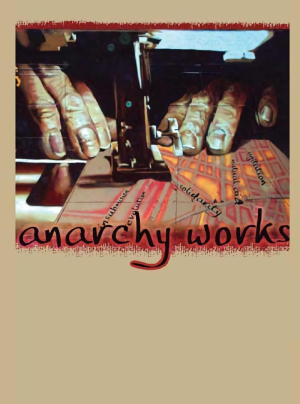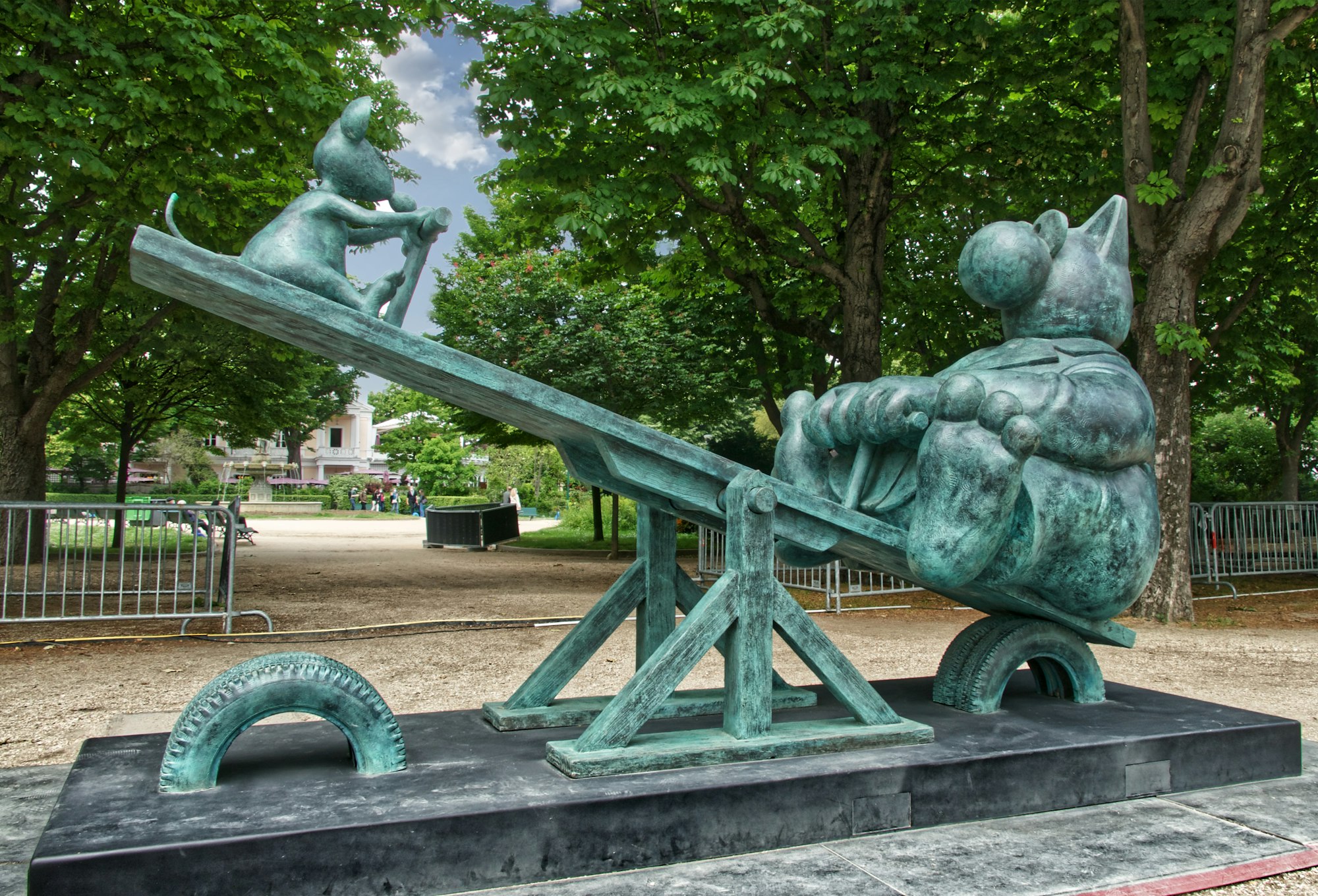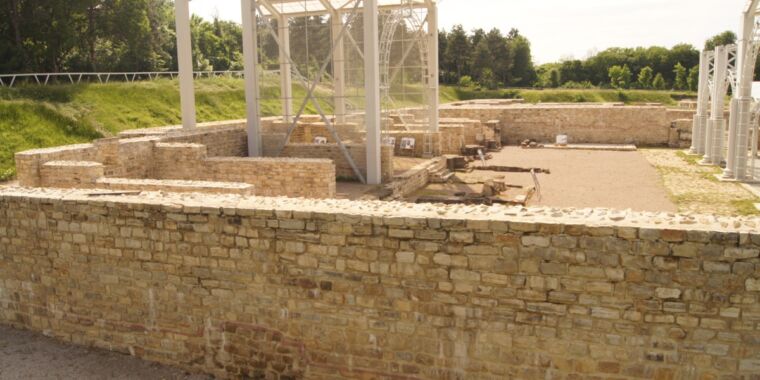Anarchy Works (2010)
Finished talking about the good old days, it's time to move on to something awesome. I want you to come out and make it work...
Thom Yorke
Dedicated to the wonderful folks at RuinAmalia, La Revoltosa and Kyiv Infoshop, for making anarchy work.
Although this book started as an individual project, in the end a large number of people, most of whom prefer to remain anonymous, helped make it possible through proofreading, fact checking, recommending sources , editing, etc. To acknowledge only a small part of this help, the author would like to thank John, Jose, Vila Kula, aaaa!, L, J and G for providing computer access throughout a year of moving, d expulsions, crashes, viruses, etc. right now. Thanks to Jessie Dodson and Katie Clark for their help researching another project, which I ended up using for this book. Thanks also to C and E, for lending their passwords for free access to scientific article databases available to university students but not the rest of us.
* * * * *
There are stories hidden all around us, sprouting from abandoned villages in the mountains or wastelands in the city, petrifying beneath our feet in the remnants of societies like we have never known , whispering to us that things could be different. But the politician you know is lying to you, the manager who hires and fires you, the landlord who kicks you out, the bank president who owns your house, the professor who corrects your papers , the cop who drives your street, the journalist who informs you, the doctor who treats you, the husband who beats you, the mother who spanks you, the soldier who kills for you and the social worker who tidies up your past and your future in a folder in a filing cabinet ask "WHAT YOU WOULD DO WITHOUT US? It would be anarchy."
* * * * *
And the girl who runs away from home, the bus driver on the picket line, the veteran who rejected his medal but clings to his rifle, the boy saved from suicide by the love of his friends, the maid who has to bow to those who can't even cook themselves, the immigrant who crosses a desert to find his family on the other side, the kid who surrenders in jail because he burned down a mall they were building in his childhood dreams, the neighbor who cleans syringes from the wasteland, hoping someone will turn it into a garden, the hitchhiker on the road open, the school dropout who gave up career and health insurance and sometimes even food so he could write revolutionary poetry for the world, maybe we can all feel it: our bosses and tormentors are afraid of what what they would do without us, and their threat is a promise: the best times of our lives are already anarchic. Introduction Anarchy would never work
Anarchism is the boldest of revolutionary social movements to emerge from the struggle against capitalism – it aims for a world free from all forms of domination and exploitation. But at its heart is a simple and compelling proposition: People know how to live their own lives and organize themselves better than any expert. Others cynically claim that people don't know what is in their interests, that they need a government to protect them, that the rise of a political party could somehow guarantee the interests of all members of society. Anarchists counter that decision-making should not be centralized in the hands of a government, but rather that power should be decentralised: that is, each person should be the center of society and each should be free to build the networks and associations they need to meet their common needs with others.
The education we receive in public schools teaches us to doubt our ability to organize ourselves. This leads many to conclude that anarchy is impractical and utopian: it would never work. On the contrary, anarchist practice already has a long history and has often worked well. Official history books tell a selective story, glossing over the fact that all components of an anarchist society have existed at different times, and countless stateless societies have flourished for millennia.
How would an anarchist society compare to state and capitalist societies? It is obvious that hierarchical societies work well according to certain criteria. They tend to be extremely effective at conquering their neighbors and securing vast fortunes for their rulers. On the other hand, such as climate change, food and water shortages, market instability, ...

Finished talking about the good old days, it's time to move on to something awesome. I want you to come out and make it work...
Thom Yorke
Dedicated to the wonderful folks at RuinAmalia, La Revoltosa and Kyiv Infoshop, for making anarchy work.
Although this book started as an individual project, in the end a large number of people, most of whom prefer to remain anonymous, helped make it possible through proofreading, fact checking, recommending sources , editing, etc. To acknowledge only a small part of this help, the author would like to thank John, Jose, Vila Kula, aaaa!, L, J and G for providing computer access throughout a year of moving, d expulsions, crashes, viruses, etc. right now. Thanks to Jessie Dodson and Katie Clark for their help researching another project, which I ended up using for this book. Thanks also to C and E, for lending their passwords for free access to scientific article databases available to university students but not the rest of us.
* * * * *
There are stories hidden all around us, sprouting from abandoned villages in the mountains or wastelands in the city, petrifying beneath our feet in the remnants of societies like we have never known , whispering to us that things could be different. But the politician you know is lying to you, the manager who hires and fires you, the landlord who kicks you out, the bank president who owns your house, the professor who corrects your papers , the cop who drives your street, the journalist who informs you, the doctor who treats you, the husband who beats you, the mother who spanks you, the soldier who kills for you and the social worker who tidies up your past and your future in a folder in a filing cabinet ask "WHAT YOU WOULD DO WITHOUT US? It would be anarchy."
* * * * *
And the girl who runs away from home, the bus driver on the picket line, the veteran who rejected his medal but clings to his rifle, the boy saved from suicide by the love of his friends, the maid who has to bow to those who can't even cook themselves, the immigrant who crosses a desert to find his family on the other side, the kid who surrenders in jail because he burned down a mall they were building in his childhood dreams, the neighbor who cleans syringes from the wasteland, hoping someone will turn it into a garden, the hitchhiker on the road open, the school dropout who gave up career and health insurance and sometimes even food so he could write revolutionary poetry for the world, maybe we can all feel it: our bosses and tormentors are afraid of what what they would do without us, and their threat is a promise: the best times of our lives are already anarchic. Introduction Anarchy would never work
Anarchism is the boldest of revolutionary social movements to emerge from the struggle against capitalism – it aims for a world free from all forms of domination and exploitation. But at its heart is a simple and compelling proposition: People know how to live their own lives and organize themselves better than any expert. Others cynically claim that people don't know what is in their interests, that they need a government to protect them, that the rise of a political party could somehow guarantee the interests of all members of society. Anarchists counter that decision-making should not be centralized in the hands of a government, but rather that power should be decentralised: that is, each person should be the center of society and each should be free to build the networks and associations they need to meet their common needs with others.
The education we receive in public schools teaches us to doubt our ability to organize ourselves. This leads many to conclude that anarchy is impractical and utopian: it would never work. On the contrary, anarchist practice already has a long history and has often worked well. Official history books tell a selective story, glossing over the fact that all components of an anarchist society have existed at different times, and countless stateless societies have flourished for millennia.
How would an anarchist society compare to state and capitalist societies? It is obvious that hierarchical societies work well according to certain criteria. They tend to be extremely effective at conquering their neighbors and securing vast fortunes for their rulers. On the other hand, such as climate change, food and water shortages, market instability, ...
What's Your Reaction?















![Three of ID's top PR executives quit ad firm Powerhouse [EXCLUSIVE]](https://variety.com/wp-content/uploads/2023/02/ID-PR-Logo.jpg?#)







